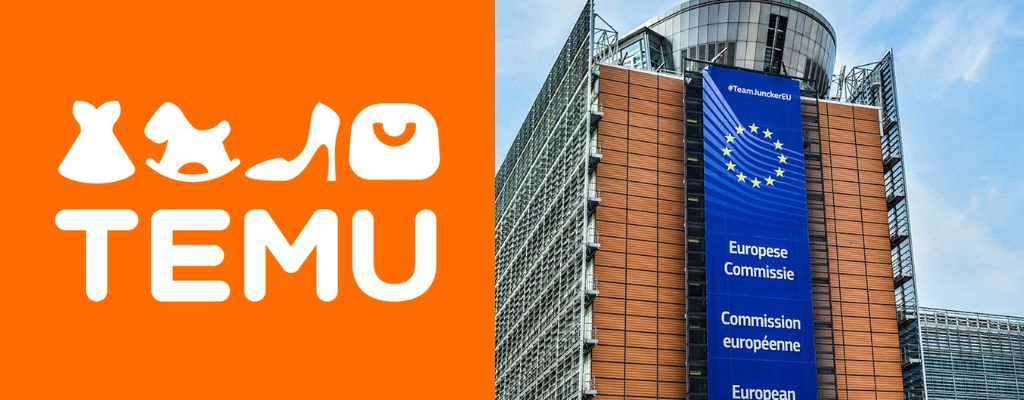In a significant regulatory move, the European Commission has opened an investigation into the Chinese e-commerce platform Temu, assessing whether it has breached the EU’s Digital Services Act (DSA). This probe comes after mounting concerns over Temu’s handling of illegal products and its compliance with consumer protection standards, drawing fresh attention to the obligations of large online platforms under the DSA framework. This investigation could shape Temu’s operations in the European Union.
Why Temu Faces Scrutiny

Temu, a subsidiary of PDD Holdings, debuted in the EU market in April 2023 and quickly gained traction, amassing around 75 million monthly users. Despite its popularity, consumer groups and regulatory authorities have raised red flags about the platform’s practices. These complaints centre around Temu’s transparency with sellers, the sale of illegal products, and manipulative tactics that consumer rights groups argue undermine EU standards for safety and accountability.
In response to these concerns, the EU designated Temu as a Very Large Online Platform (VLOP) under the DSA in May 2024. This classification subjects it to stringent regulations, obligating Temu to prevent illegal content, improve transparency, and safeguard consumer data. According to the European Consumer Organisation (BEUC), Temu’s business practices are inadequate to meet these obligations.
The BEUC’s complaints point to specific issues, including the platform’s alleged use of “dark patterns,” or manipulative design tactics that make it difficult for consumers to make informed decisions. BEUC also expressed concerns about Temu’s inadequate transparency on seller information, leaving consumers with limited assurance that the products they purchase meet EU safety standards. They further argue that Temu’s opaque recommendation algorithms and lack of traceability for traders compromise consumer rights.
Measures Taken by Temu
Since being designated a VLOP, Temu has taken several steps to address these concerns. In October 2024, Temu submitted a risk assessment report to the European Commission, detailing its efforts to comply with the DSA. This report includes measures to mitigate risks associated with illegal products and mechanisms to improve transparency in seller information and product recommendations.
Temu has publicly expressed its commitment to cooperation and compliance, though specifics on what additional changes the company may implement remain unclear. In response to the Commission’s request for information, Temu has reportedly refined its “Notice and Action” system, allowing for more streamlined reporting of illegal products. It has also indicated improvements in how it traces sellers on its platform and communicates product recommendations to enhance consumer trust and transparency.
The Stakes of the EU’s Investigation

The implications of the EU’s investigation into Temu are significant, both for the platform and for consumer protection standards across the EU. The Digital Services Act sets a high bar for transparency and accountability, especially for large platforms like Temu with a wide-reaching influence on consumers. If found non-compliant, Temu could face penalties reaching up to 6% of its global turnover, a financial blow that could impact its expansion plans in the EU market.
Experts suggest that Temu’s compliance with the DSA is a litmus test for the efficacy of the DSA framework itself. “The EU’s handling of Temu could send a powerful message to other large platforms about the importance of consumer protection and regulatory compliance,” said one analyst. By taking decisive action, the European Commission aims to curb illegal products and questionable business practices on Temu’s platform, a move that could set a precedent for other online marketplaces.
Consumer Protection and Industry Impact
Consumer advocates argue that the DSA’s requirements are essential for safeguarding consumer rights in a digital marketplace that has seen a rapid increase in questionable practices. BEUC’s complaints highlight the broader need for accountability in the e-commerce space, where platforms sometimes prioritize profits over consumer protection. According to BEUC, increased regulatory scrutiny on platforms like Temu is necessary to prevent the sale of illegal or counterfeit products and ensure a safe and transparent shopping environment for consumers across Europe.
The potential impact on Temu’s market position in the EU is significant. If forced to implement stricter controls and transparency, the platform may find it challenging to sustain the rapid growth it has experienced since entering the EU market. Additionally, any noncompliance penalties could deter other foreign-based platforms from entering or expanding in the European market, marking a substantial shift in the digital economy landscape.
What’s Next?
As the investigation unfolds, Temu will face increasing pressure to demonstrate compliance with the DSA’s strict standards. The European Commission is likely to continue monitoring Temu’s business practices closely, especially its approach to managing illegal content and improving transparency. For Temu, this scrutiny could prompt a reevaluation of its operational model within the EU, potentially leading to changes that enhance consumer trust and regulatory compliance.


















